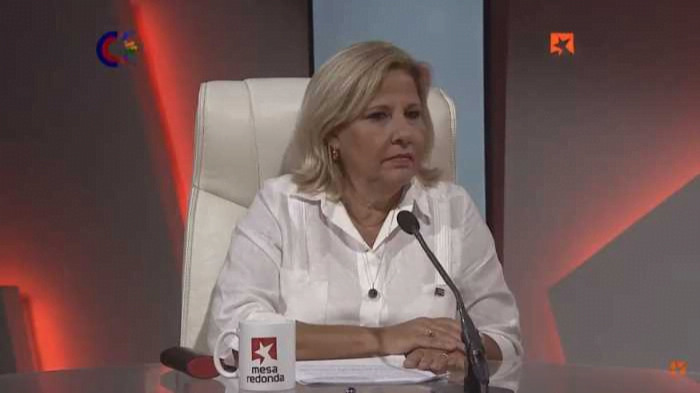
First Deputy Minister of Foreign Trade and Foreign Investment, Ana Teresita González.
Havana, Aug 15 (RHC)-- The private sector in Cuba will be able to engage directly in foreign trade activities. However, selectively and under the Ministry of Foreign Trade and Investment (MINCEX) supervision, Cuban authorities said Monday.
The first deputy minister of the portfolio, Ana Teresita González, clarified in the television program Mesa Redonda that the state monopoly on foreign trade remains, which includes the establishment of the regulations for its implementation.
However, the government has decided to authorize certain non-state economic actors to carry out this type of activity directly, for the selection of which they will consider several aspects.
Among them, she mentioned that they should be entities producing goods and services with export possibilities, but where making sales without intermediaries could facilitate their execution.
For example, she mentioned the small and medium-sized IT service companies, where the experience should begin.
They will also evaluate the cases of private companies that need to import in the same way, but only where this will lead to advantageous contracts that will allow them to achieve better prices for subsequent sale to the population.
She stated, however, that it will only be possible to import inputs, raw materials, equipment, and other essential products to fulfill the social purpose for which such organizations were created.
Gonzalez said that the measures adopted encourage exports of goods and services and eliminate all the obstacles that limit and impede them.
She pointed out that a working group headed by the MINCEX is currently carrying out the corresponding evaluations to present for approval in September the first private companies to which foreign trade will be directly authorized.
She added that the country is working in parallel to strengthen the state entities that carry out these activities, which have the mission of incorporating the demands of the non-state sector to which they provide services.
Part of this strengthening process is the creation of micro, small and medium-sized state-owned companies dedicated to foreign trade, which has increased to 60 the number of companies that perform these functions in the country.

